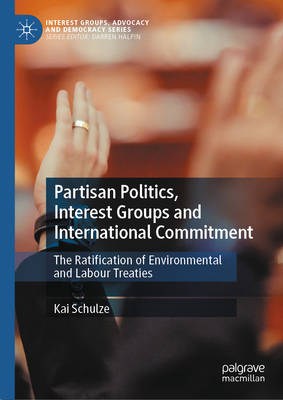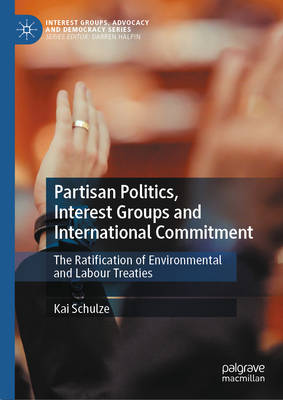
Bedankt voor het vertrouwen het afgelopen jaar! Om jou te bedanken bieden we GRATIS verzending (in België) aan op alles gedurende de hele maand januari.
- Afhalen na 1 uur in een winkel met voorraad
- In januari gratis thuislevering in België
- Ruim aanbod met 7 miljoen producten
Bedankt voor het vertrouwen het afgelopen jaar! Om jou te bedanken bieden we GRATIS verzending (in België) aan op alles gedurende de hele maand januari.
- Afhalen na 1 uur in een winkel met voorraad
- In januari gratis thuislevering in België
- Ruim aanbod met 7 miljoen producten
Zoeken
Partisan Politics, Interest Groups and International Commitment
The Ratification of Environmental and Labour Treaties
Kai Schulze
€ 213,95
+ 427 punten
Omschrijving
International treaties and regulations have flourished over the past century. But why are some states more likely to ratify international treaties than others? And does domestic politics influence international commitments? This book seeks to answer these questions by examining the patterns and determinants of international treaty ratification in the areas of environmental and labour policy from the early twentieth century to the present. The book argues that partisan politics and interest groups play a significant role in explaining differences in international treaty ratification. It also demonstrates that the international commitments of industrialised democracies are heavily influenced by their domestic politico-economic characteristics rather than by their international linkages and interdependencies alone. These findings have important implications, as they highlight the ongoing importance of domestic constituencies in shaping international policy responses. The book will appeal to all those interested in international and comparative politics, sustainable development, and environmental and labour policy.
Specificaties
Betrokkenen
- Auteur(s):
- Uitgeverij:
Inhoud
- Aantal bladzijden:
- 246
- Taal:
- Engels
- Reeks:
Eigenschappen
- Productcode (EAN):
- 9783031999413
- Verschijningsdatum:
- 4/10/2025
- Uitvoering:
- Hardcover
- Formaat:
- Genaaid
- Afmetingen:
- 148 mm x 210 mm
- Gewicht:
- 471 g

Alleen bij Standaard Boekhandel
+ 427 punten op je klantenkaart van Standaard Boekhandel
Beoordelingen
We publiceren alleen reviews die voldoen aan de voorwaarden voor reviews. Bekijk onze voorwaarden voor reviews.









